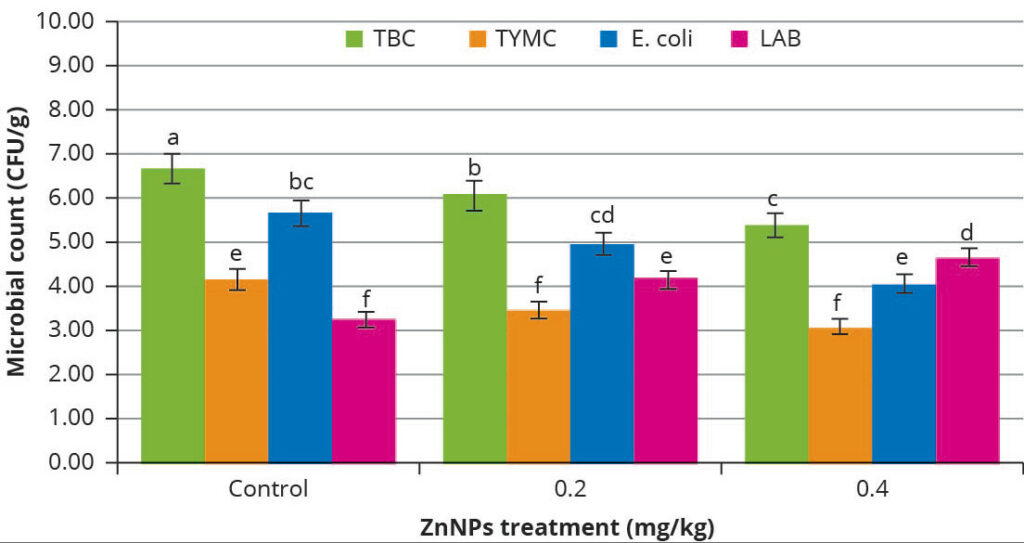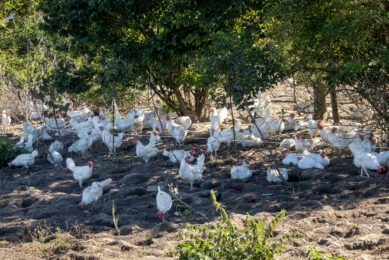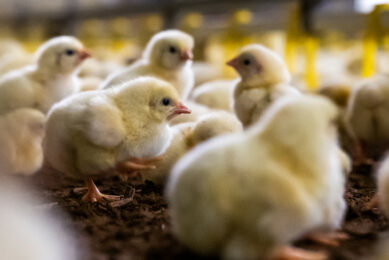What can organic nano-zinc deliver for your birds?

Zinc is an important mineral with diverse functions that benefit growth performance and health. Modern-day research focuses on using zinc sources with better absorption and bioavailability. A new study published in the Poultry Science journal elaborates on the benefits of biosynthesised organic nano-zinc to broilers.
As a component of several metalloenzymes, zinc (Zn) is involved in the regulation of appetite, the immune system, redox reactions and the metabolism of nutrients such as carbohydrates, protein and lipids. Studies show that severe Zn deficiency in broiler chickens could result in poor feed efficiency, impaired growth and compromised immune functions.
According to the National Research Council (NRC), the recommended Zn requirement for broiler chickens is 40 mg/kg to support growth performance and production. On the other hand, the NRC’s recommended values for most trace minerals are based on earlier broiler strains and may be obsolete for today’s commercial broiler strains. Traditionally, Zn in the broiler diet is supplied in the form of inorganic Zn, such as zinc oxide (ZnO) and zinc sulphate (ZnSO4) due to cost and commercial availability. However, the major downside of inorganic Zn is its low bioavailability and retention, making it unavailable for absorption across the small intestine, while supplementing high levels may affect the stability and digestibility of other trace elements and increases its excretion to the environment. Research shows that zinc nano-formulated particulates exhibit novel beneficial properties owing to their size, shape, large surface area, high surface activity, high catalytic efficiency and strong adsorbing ability.
Supplementing organic nano zinc
In this study, the researchers investigated the impact of various dietary organic zinc nanoparticles (ZnNPs) levels on gut bacteria, meat quality, growth performance, carcass traits and the immunity of broilers. One-week-old broiler chicks, which were allotted to 3 experimental groups, received a basal diet supplemented with 0, 0.2, or 0.4 mg ZnNPs/kg diet. Bacillus subtilis and zinc nitrate were used for the biosynthesis of organic zinc nanoparticles.
Improving feed efficiency
The results of the study showed high feed utilisation efficiency with the supplementation of organic zinc nanoparticles and this translated to improvements in the growth of birds. The improvement in feed conversion ratio (FCR) was approximately 4.8% and 6.1% with the supplementation of 0.2 and 0.4 mg ZnNPs, compared to the control group. The growth of birds was 4.2% higher in the 0.4 mg ZnNPs compared to the control. To further examine the broiler efficiency of performance, the researchers measured the performance index and found the index to be 10.6% higher in the 0.4 mg ZnNPs compared to the control group.
“The results we obtained can be attributed to the beneficial impact of zinc nanoparticles’ capacity to improve gastrointestinal absorption by boosting mucosal effectiveness,” the researchers said.
They added that zinc bioavailability is enhanced by supplementing it as nanoparticles which have greater adsorption capacity. They also attributed the growth benefits to the metabolic regulating capacity and immuno-modulatory, growth-promoting and antimicrobial properties of zinc nanoparticles.
Imparting better carcass and meat quality traits
The dressing yield of broiler groups supplemented with ZnNPs (0.2 and 0.4 mg ZnNPs/kg diet) increased considerably when compared to the control group. The dressing yield was higher than that of the other groups at a level of 0.4 mg ZnNPs/kg diet. The findings also showed that supplementing with ZnNPs through diet (0.2 and 0.4 mg ZnNPs/kg diet) greatly increased blood and feather percentages. The weight of most organs including the heart, gizzard and spleen was higher in the 0.4 mg ZnNPs group compared to the lower supplementation level and the control group. The researchers said the outcome could be explained by ZnNPs’ antimicrobial capacity, which lowers the burden of pathogenic bacteria and enhances gut health, thus promoting the growth of organs including immune-related organs such as the spleen. The spleen is the largest peripheral lymphoid organ in chickens, and it plays a significant role in both antibacterial and antiviral immune responses against acquired antigens.
Their findings also indicated that the carcass’s sensory attributes, including texture, aroma, tenderness, and juiciness, were maintained by the supplementation of zinc nanoparticles — the difference was not significant compared to the control group. Conversely, the meat chemical composition showed higher levels of protein and moisture and lower fat levels in the nano zinc-supplemented birds compared to the control birds.
Improving the immunity of birds
Supplementing zinc nanoparticles favoured the proliferation of immune-related indices as shown in the measured serum biochemical parameters in Table 1. The study’s findings demonstrated that, compared to the control birds, zinc nanoparticles reduced cholesterol levels, low-density lipoprotein (LDL), uric acid and abdominal fat. On the other hand, indicators of liver damage in alanine transaminase (ALT) and aspartate transaminase (AST) enzymes were reduced by the supplementation of both levels of the zinc nanoparticles. Supplementation of zinc nanoparticles also increased the concentration of immunoglobulins G (IgG) and immunoglobulins A (IgA).
Antimicrobial properties
The researchers evaluated the antimicrobial properties of zinc nanoparticles in the caecum of the birds and found that supplementation with the nanoparticles reduced the Total Bacteria Count (TBC), Total Yeast and Mould count (TYMC), and E. coli counts in a dose-dependent manner compared to the control group (Figure 1). In several studies, Lactobacillus has been reported to have positive probiotic effects contributing to the improvement of the growth performance and prevention of diseases in broiler chickens. In this study, there were higher Lactobacillus counts in the groups fed ZnNPs at 0.2 and 0.4 mg/kg, compared to the control group.
Figure 1 – Impact on diets ZnNPs treatments on the microbial count of broilers caecum.

Conclusion
The researchers concluded that supplementing zinc nanoparticles has a significant antimicrobial effect on pathogenic bacteria and fungi and improves the performance and immunity of broilers while maintaining meat quality.











